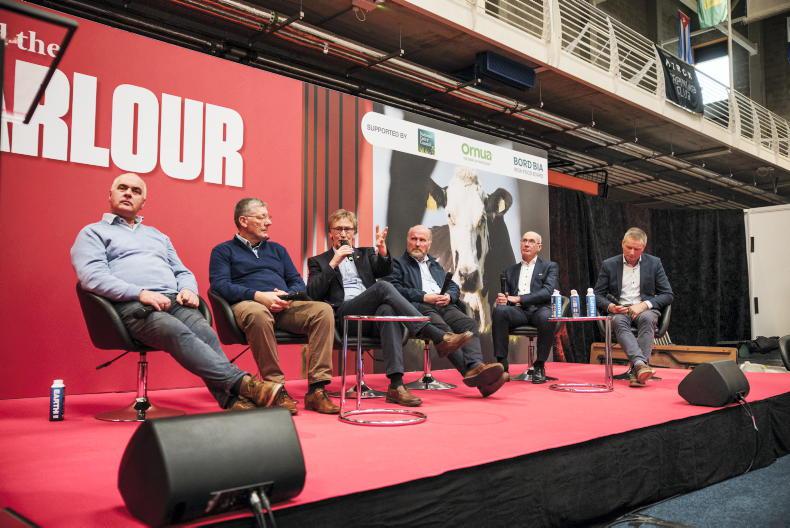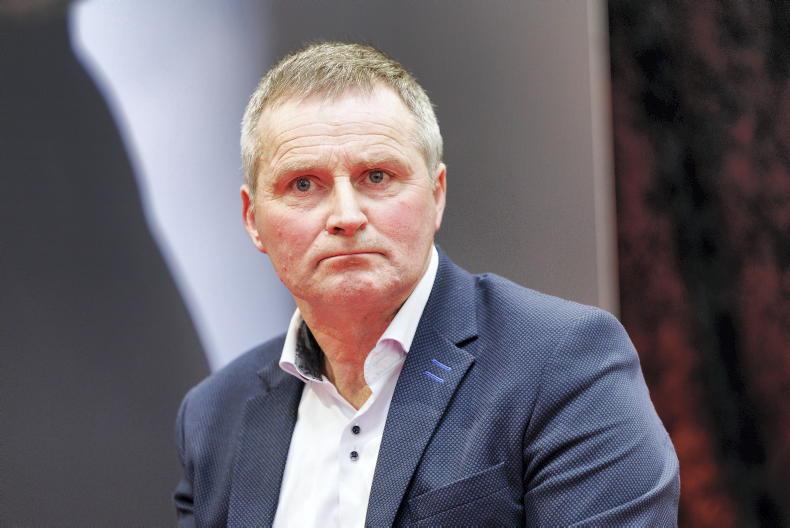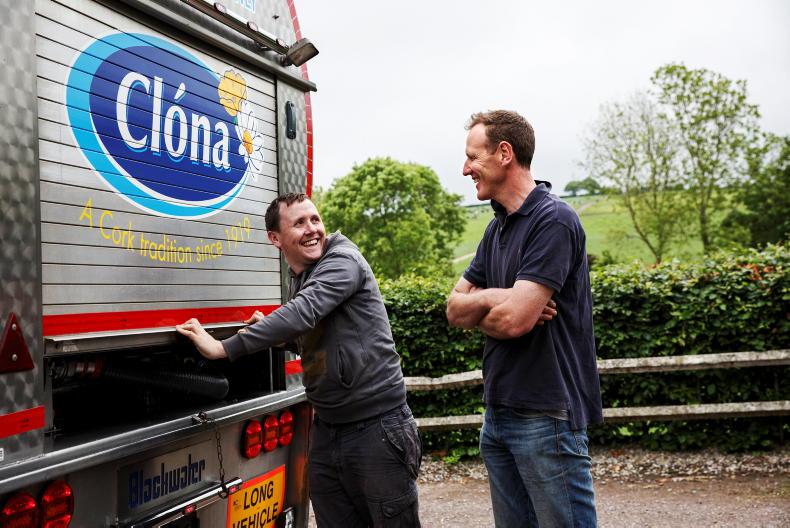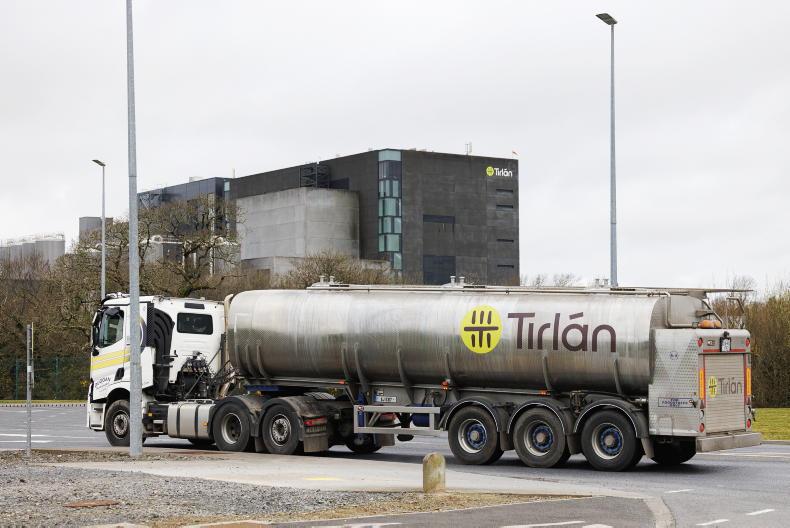From the rough and tumble of the liquid milk business to the much more consistent world of casein returns, Arrabawn Co-op has a foot in a number of businesses.
Chief executive Conor Ryan described the financial results for 2021 as “solid and typical of what a business like this needs to deliver”.
Milk processing for skim milk powder, butter and casein out of Nenagh in north Tipperary is the core business followed by agri trading through a network of 13 stores, liquid milk and a feed business (Dan O’Connor Feeds) headquartered in Limerick.
Over the last number of years, Arrabawn has invested in milk processing, in particular, to allow it make casein powders. This year, the feed mill in Limerick will get a cap ex injection of circa €2m to install a new line.
The realignment of the main entrance to the milk processing site in Nenagh is the other main spend planned in 2022. Outside of that, it’s all hands-on-deck to keep milk processed.
We spent €30m three years ago. It would cost significantly more than that today for the same work
The real positive for the Arrabawn business is the fact it went and invested in casein manufacture when it did. It moves Arrabawn away from a traditionally lower and more variable priced product such as skim milk powder and it increased processing capacity.
Ryan said: “We spent €30m three years ago. It would cost significantly more than that today for the same work. 2021 was the first full year of casein production from the new plant.”
Similar to last year, the main drag on the 2021 accounts published last week is still probably the liquid milk business. It has had a turbulent time for the last few years.
In 2020, Arrabawn had to recall product from its bottling plant at Kilconnell. In 2021, a restructure of the liquid business was initiated after the Food Safety Authority (FSAI) initiated an investigation, court proceedings and subsequently fined the co-op for breaches of food law.
Arrabawn volumes in liquid milk are trending downwards and proportionally are now about 10% of the total Arrabawn pool
Leaving all that aside, the margins in liquid milk have struggled for years. The retailer dominance and a willing band of participants to meet supermarket requirements that are tendered regularly means farmers up and down the country are essentially undercutting each other regularly.
Arrabawn volumes in liquid milk are trending downwards and proportionally are now about 10% of the total Arrabawn pool, down from 12% last year.
Turnover is up again at Arrabawn as milk supplies continue to increase. Turnover was up from €278m to €340 in 2021.
When we look back over the last five years and compare the numbers for 2017 to 2021, turnover has increased by over €90m, but profits for both years (2017 and 2021) were almost the same at circa €4m each year.
I asked Micheál O’Kelly, chief financial officer, why this is and he was quick to point out turnover will only get you so far.
“Our energy bill is up €9m in the same period, milk volumes are up, turnover is important, but margin is everything so if product pricing is not good, any business will suffer.”
In 2021, turnover was up by 22%, but the cost of sales was also up 22%.
Earnings before interest, depreciation, tax and amortisation (EBIDTA) are up to €12.5m in 2021 from €10.4m in 2020
Dairy processing makes up almost 80% of the turnover with the balance in the agri-trading side of the business. In 2021, agri-trading was up €9m to reach a turnover of €76m compared with €264m turnover in the dairy business.
Earnings before interest, depreciation, tax and amortisation (EBIDTA) are up to €12.5m in 2021 from €10.4m in 2020. That means operating profits come in at just over €4m.
Creditors were up from €43m to €53m, but O’Kelly suggests that’s a function of price inflation mostly and milk from another processor delivered in December 2021.
The balance sheet is stronger, with €51.5m of shareholder funds up from €49.4m the year before. Production and admin staffing numbers for 2021 were down 30, from 401 to 371, while wages and associated costs were almost the same as 2020.
Debt at €33m is still high for the size of the business relative to some of the other Irish players we have profiled in recent weeks. Another comparator for debt load is the ratio of bank debt to EBIDTA. For Lakeland and Dairygold this ratio is 1.9 to 1. For Arrabawn its 2.6 to 1.
However, O’Kelly is not concerned and another chunk will come off this in 2022. A number of the processors that made processing investment have been at this level of debt loading.
Are you worried about an EU ban on Russian oil?
The dairy industry is very exposed to an energy crisis.
It just beggars belief why we (Ireland) don’t have an LNG reserve to give some flexibility in energy source and a capacity to ease into any energy shortage.
Will you continue to take new entrants and do they have to share up?
Our board policy is, yes, they have to share up to 4,000 shares per 100,000 litres over a period of time.
Our survey work tells us our retirements will equal our expansion from existing suppliers.
New entrants are still coming in and we had about 30 in the last year, with 115 in the five years before that.
Will you continue to take contracted milk in the coming years?
We have extra capacity. We have no long-term agreements with any processor. Contracted milk was up 20m litres during 2021 and growth in own supply was up about 30m litres.
The liquid milk business has struggled consistently of late – will Arrabawn stay in that game?
We have been in it 50 years, but the market has changed a lot of late. It has become ultra competitive.
It was €1.49 for two litres for the last 15 years and while retail price is now slowly increasing, it has a long way to go to be profitable.
Will you take on more milk away from the home base in north Tipperary and Galway?
Our policy is that we will consider all requests from those adjoining farms where we are already collecting milk in north Cork, Wexford and Waterford.
2021 was another good year for Arrabawn as the dairy business once again delivered and product value lifted with its first full year of production from the new casein plant. Like every other co-op, energy costs in 2022 will be significantly higher.
The higher dairy commodity market returns are still going to mean 2022 will be another good year for Arrabawn.
Operating profits dipped to near €1m in 2019, but have risen for the last two years.
Debt was hammered down in 2021. So while similar to other processors it didn’t get near the 2021 Ornua PPI returns, the profit margin, the debt paydown, coupled with the milk price paid show that the PPI does reflect close to what the market is delivering.
Index assumptions
Conor Ryan makes the point it reflects the market, but the Ornua index assumptions are way off on processing costs, the basket of goods included and the efficiency of Irish plants versus international plants.
- Operating profits up from €1.04m in 2019, to €2.68m in 2020 and now €4.04m in 2021.
- Net debt down €8.8m from €42.4m to €33m.
- Milk processed up from 450m litres to 498m litres (up 10.6%). Own milk supply was up 7% to 8% in 2021 and is expected to be up again in 2022 by 3% to 4%.
- Liquid milk business continues to struggle. Agribusiness profits won’t be as good in 2022 as any farmer cash is spent on big-ticket items such as feed and fertiliser.










SHARING OPTIONS